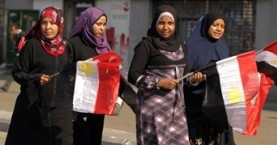BAGHDAD: Iraq’s parliament will convene on Monday to elect a new speaker and two deputies, the first steps in forming a government nearly eight months after inconclusive elections, the acting speaker said.
"A session will convene on Monday to elect the president of the parliament and his two associates," the caretaker speaker, Fuad Massum, said in a statement.
The Sunni-dominated Iraqiya bloc of former premier Iyad Allawi narrowly won the March 7 election with 91 seats in the 325-member parliament, followed by Prime Minister Nuri Al-Maliki’s Shiite State of Law Alliance with 89.
Neither has been able to muster the majority needed to form a government, despite back-door negotiations with various Shiite, Sunni and Kurdish blocs that also picked up seats.
Last month, Iraq’s Federal Supreme Court ordered parliament to resume work and get on with the business of forming a government.
The ruling was the result of a case a dozen civic groups brought against Massum in mid-August accusing him of violating the constitution by leaving open the Council of Representatives’ first session, without any progress on the election of a new speaker.
That, they alleged, was blocking the election of a new national president and prime minister.
Massum told AFP that the court’s ruling was "a correct decision. I will follow it, and I call on all MPs to do the same."
In Damascus, Syria’s President Bashar Al-Assad on Wednesday called for the speedy formation of a government of national unity in Baghdad, after meeting visiting Iraqi Vice President Adel Abdel Mehdi.
Assad said it was "necessary to accelerate the formation of a unity government in Iraq that enjoys popular support for restoring security in this country."
Constitutionally, Iraq’s parliament must choose a speaker and two deputies, then name a president, whose first job is to name the leader of the coalition with the largest number of seats in parliament to try to form a government.
The constitution stipulates that a speaker, president and prime minister must be elected in that order.
Iraq’s four main political blocs, none of which holds a parliamentary majority, have made little progress in cobbling together a governing coalition since the general election.


